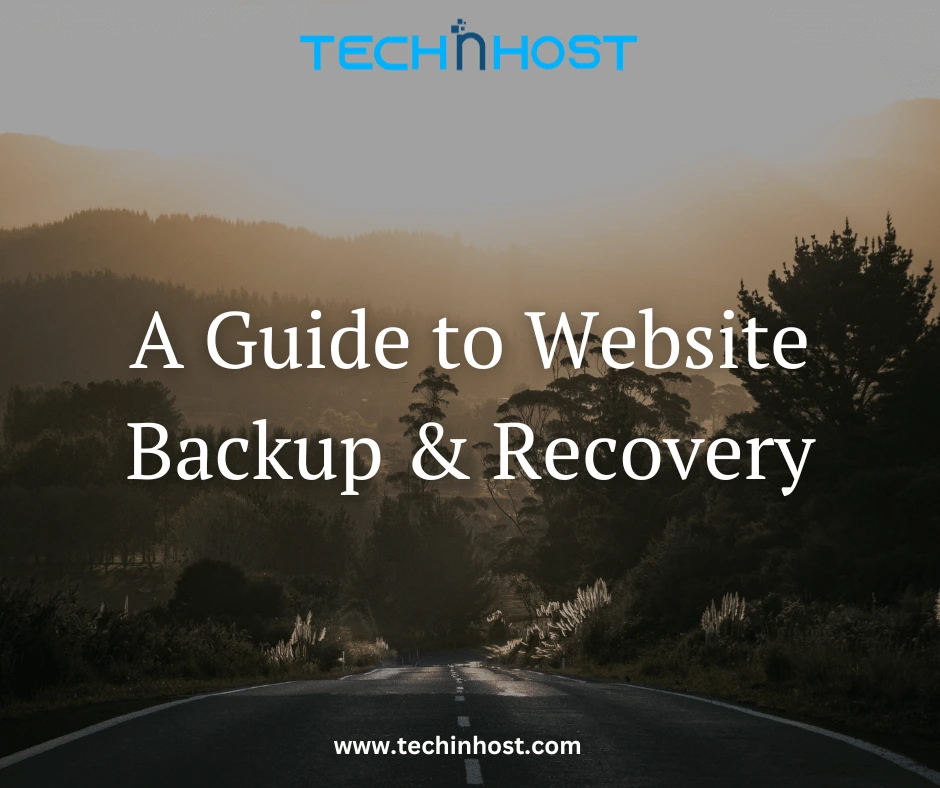Your website is a symbol of your ideas, brand, and labour of love, it's more than just a list of files. Strong website backup and recovery procedures are important given the threat of losing this priceless asset to server failures, hacking attacks, or accidental deletions.
Why Backing Up Your Website Matters:
1. Data Security: Given the sensitive information on your website and the rapidly changing nature of cyber threats, it is extremely important that its security be maintained. Website backups serve as a safeguard, offering a way to get your data back in the event of a data loss incident, cyberattack, or breach.
2.Business Continuity: Website downtime for businesses is equal to lost revenue. Daily backups make sure speedy recovery, reducing the effects of service interruptions and assuring an ongoing online presence, all important components for long-term business operations.
3. Protection Against Human Errors: Errors occur even with the best of intentions. Your website may become severely changed or deleted accidentally if you don't have a reliable backup. Putting a backup plan in place protects against unintentional incidents.
Best Practices for Website Backup:
1. Frequency Matters: Daily or weekly backups guarantee that in the case of a disaster you have the most recent version of your website, depending on how often you backup your website.
2. Choose a Secure Storage Solution: The location of your backups is extremely important as the backup files themselves. An additional line of defence against on-site server theft or physical damage is provided by using safe off-site storage options like cloud storage or remote servers.
3. Automate the Process: Errors can occur in backup processes as well. By automating the backup process, you can lower the chance of making a mistake and guarantee consistency in your backup plan. Knowing that your website is continuously backed up allows you to set it and forget it.
Types of Website Backups:
1. Full Backups: An entire copy of your website, including all files, databases, emails, and configurations. They might need more storage space, even though they are perfect for thorough recovery.
2. Incremental Backups: Only the changes that are made since the last backup are included in these backups. Incremental backups, while useful in terms of storage capacity, necessarily require full restoration from the most recent full backup.
3. Database-Only Backups: These backups, which only focus entirely on the website's database, are suitable for websites with regularly changing content or regular updates and offer a faster recovery option in case of database-related problems.
Website Recovery Strategies:
1. Fast Recovery from Full Backup: Full backup allow you to recover a whole website timely in case of a complete website failure. This makes sure a little downtime and a fast return to regular business.
2. Efficient Incremental Recovery: Because incremental backups restore only the changes made since the last backup, they allow a more focused recovery. This makes restoration less time- and resource-consuming, making it a useful method for small problems.
3. Database Rollback: You can restore to a previous state using a database-only backup if the problem is limited to the database of your website. This controlled strategy is useful for fixing database-related issues without disrupting with other web content.
How TechInHost Can Help You with Backing Up Data:
TechInHost is aware of how important a website backup is to protecting your website. Our backup options are made to provide comfort and guarantee the reliability of your web presence. How we can help you is as follows:
1. Daily Off-Site Backup:By performing off-site backups every day, we make sure that your data is kept safe and separate from your main server. This reduces the chance of data loss as a result of hardware system failures or physical damage.
2. Backup data Retention: We stored the backup data for a long period of 21 days for our shared hosting customers. This long retention time makes sure you have different options of recovery available so that you can restore the backup from a point or day you want it to restore from.
Conclusion:
These days, it's not just a preventative measure to invest time and money in a strong website backup and recovery plan, it's a must. Because the internet is an unexpected place, having daily full website backups as a safety measure makes sure that your website will stay strong through hardtimes.


 Google Workspace
Google Workspace
